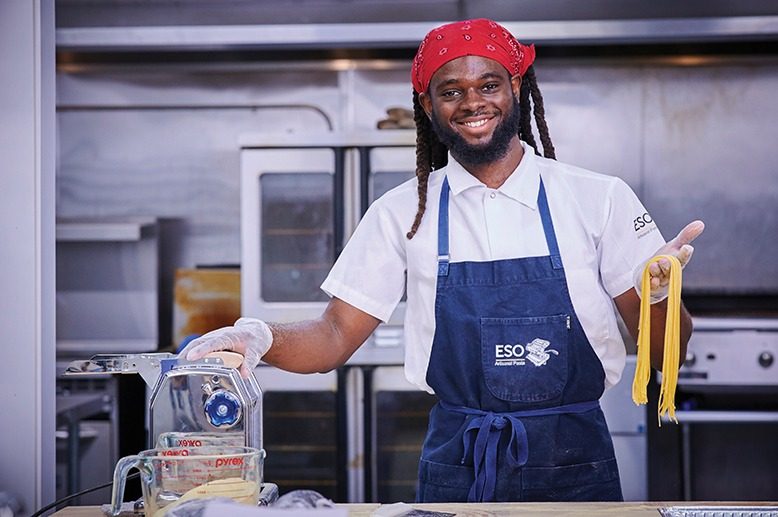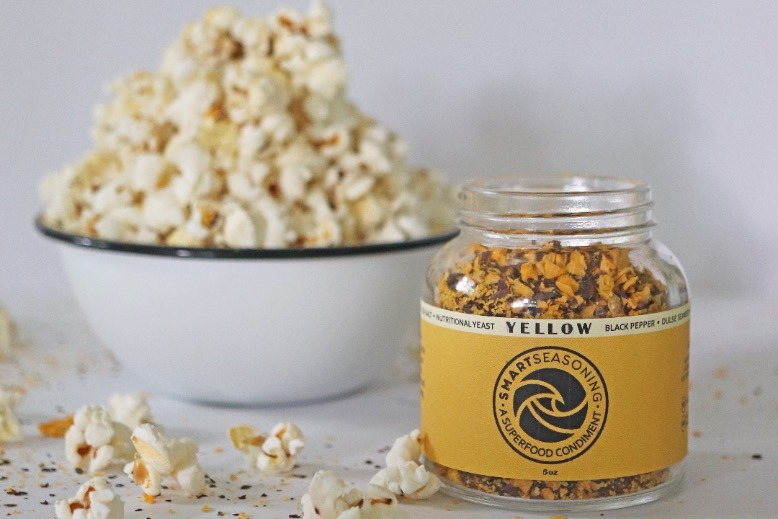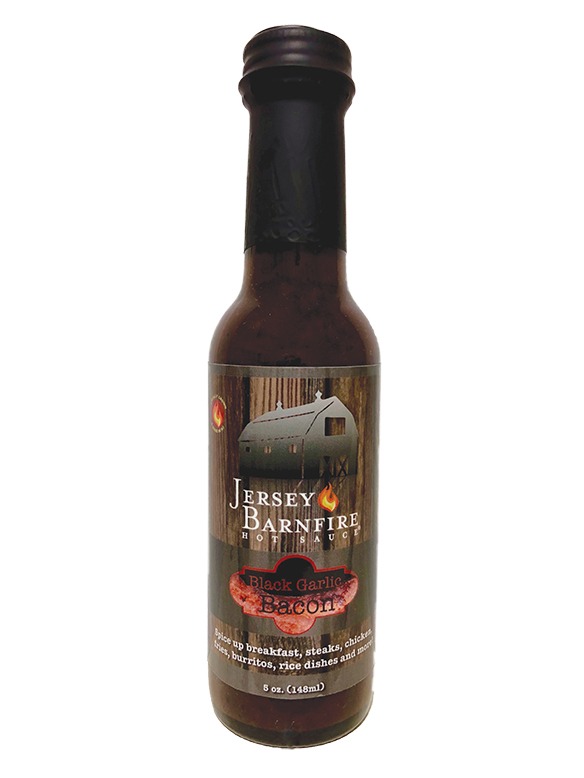
Back in March, when Covid-19 shut down much of the normal economy, the hospitality industry took a staggering blow. Restaurants that didn’t shutter were reduced to takeout and delivery. In New Jersey, some 222,000 people were out of work. Here are the stories of four artisans who seized the opportunity to create.
THE PASTA WHISPERER
With a job cooking at an upscale Manhattan restaurant, 22-year-old Ayinde “AJ” Sankofa thought he was on his way to becoming a head chef. Next thing he knew, the pandemic had shut down restaurants. “I was just lying on my couch doing nothing” in an apartment in Morristown.
Then a light went on. He and two friends had mapped out plans to start an artisanal pasta business. “That’s hard to do when everybody’s working,” he says. “But suddenly, we had time. There was no reason not to take a chance.”
Thus was Eso Artisanal Pasta born. Sankofa is the gifted crafter of pastas and sauces. Equal partners Isaiah Pinnock-Findley and Joel Canarillo-Diaz are, in Sankofa’s words, “the brains.” It took a few months to get things rolling and rent space in a commercial kitchen in Orange to make the fresh (not dried) pastas, which are sold frozen, and the sauces.
But since they began taking online orders in mid-June and offering the products three days a week at the Artist Baker in Morristown, they’ve been selling about 90 pounds of pasta and 90 pints of sauce a week.
“It’s hard to keep up with demand,” Sankofa says. “We’re working seven days a week.”
Growing up in North Carolina and then in East Orange and Morristown, Sankofa had a nonstop motor for athletics, especially football and track and field. His interest in food was limited to “mac and cheese and PB and J.” As a teen, he thrived on the go-go-go pressure of after-school jobs busing tables. Not until he landed a job as a busboy at the newly opened Jockey Hollow Bar & Kitchen in Morristown in 2014 did the pleasure and complexity of food, and pasta in particular, unfold before him like a revelation.
That was largely thanks to Kevin Sippel, then JHBK’s executive chef. “AJ was highly intelligent and wanted to do everything the right way,” Sippel says. “He really stuck out. One day, he asked if he could work in the kitchen. I think he was attracted to the brotherhood there. I brought him in, and he thrived.”
[RELATED: The Man Who Helped Put Jersey Wineries on the Map]
Sankofa was drawn to pasta not only for its sensuousness and variety, but for its kineticism. “It’s the only hot station where you take the product from raw to cooked to plating in a few minutes,” he says. “It’s all about speed and finesse. To me, it was paradise.”
Researching online, Sankofa found a program in northern Italy on pasta making. Turned out, Sippel himself had done it and recommended it. In 2016, Sankofa spent six months studying pasta there. He was enthralled. “The culture, the language, the flow of life, the visual aspect,” he enthuses, shaking his head in wonder. It was only the second time he had ever been out of the country. In 2019, he took time off from his job cooking at Legacy Records in Manhattan to return to Italy for seven months to further immerse himself in pasta’s subtleties and possibilities.
When the pandemic struck, Sankofa and his partners might not have moved their business dream to the front burner without the encouragement of Sankofa’s girlfriend, Kristina Gambarian, who had just launched her own enterprise, Babushka’s Pies. To get started, they pooled their savings.
One thing they needed was a name; they drew it from sports. “Eso” is a Spanish word meaning “that.” But it’s also an exclamation uttered by soccer fans when they witness an amazing play—like, “Did you see that!?” It’s a word they hope to be putting on more people’s lips every day.

Although baker Emily Downs’s breads are made with wheat, their long fermentation breaks down gluten, and many people who are gluten-sensitive can eat them. Photo by Jennifer Pottheiser
BOLSTERING THE STAFF OF LIFE
Back in February, Emily Downs had a feeling Covid-19 was not going to pass like a snow squall. An artisanal bread baker and pizza maker, she moved her operation out of the Get Juiced organic diner in Sussex Borough, bought four used home ovens for $50 each, and had them installed in the basement of her home in town, along with new gas lines. “I created a bunker bakery in my house,” she says.
At the time, she was supplying five restaurants near her home in Sussex with bread and was making Neapolitan-style pizza in a wood-burning oven she towed around in a trailer and set up at the Sparta farmers market. In short order, restaurants shut down, and cooking at the markets along with them. Fortunately, she had amassed a long e-mail list of fans. She sent out a blast announcing that she would drop off breads at people’s houses.
“The first day,” she recalls, “I got orders for 12 loaves. I mapped it out and drove over 90 miles. It took 12 hours, and I made about $150. In the past, when I did pizza and bread at catered events, I didn’t go out for much less than a thousand dollars. Since I started the business in 2016, I’d been doing about 30 catered events a year. But at that point, I was thrilled to be making any money at all.”
In the ensuing months, Downs, 36, has cranked up the creativity and returned to baking at Get Juiced. Pre-pandemic, all she needed was her signature community loaf—an earthy, 10-pound mound of hearty, organic white with an epically caramelized crust crackling with sesame seeds. Now she has a rotating cast of about 10, including loaves enriched variously with activated charcoal, chlorophyll, seeds, or flavorful, unusual flours, such as Egyptian einkorn.
“She has a great passion, with extremely capable hands,” says Aishling Stevens, executive chef of the Crystal Springs Resort in Hamburg, which was buying her breads until it shut down for three months in the early stages of the pandemic.
What separates Downs’s loaves are, first and foremost, exquisite texture—unusually moist, dense, rich and substantial. The key is long fermentation times—18 hours instead of, say, a more typical three. (“The most important ingredient,” she likes to say, “is lots of time.”) At such durations, she says, gluten—those long strands of protein—break down, making the bread more digestible. She didn’t set out to make a gluten-free bread, and hers technically isn’t. “But people come to me and say, ‘I’ve been gluten intolerant for so many years, and I can eat yours, and it’s amazing.’”
Downs grew up in Sussex; she got an art degree from Smith College in 2006. A semester in Italy and some time in San Francisco opened her eyes to food for the first time since she had baked with her grandmother as a girl. She began to learn wood-fired baking at Bobolink Dairy in Milford and then honed her craft at New York City restaurants before starting her business in 2016.
Downs’s breads are available Saturdays at the Sparta Farmers Market, and Friday and Saturday at Get Juiced, where she also bakes pizza in her mobile, wood-burning oven. Her breads are served at the Mohawk House restaurant in Sparta. In addition to her new website, Downs can be reached at [email protected], on Instagram @emilys.hearth, or Emily’s Hearth on Facebook.

Chef Lucas Manteca’s Smart Seasoning blend started as a flavor enhancer to entice his young daughter. He will introduce a second blend, for barbecuing, this fall. Courtesy of Smart Seasoning/Yvonne Yuen
FLAKES OF SANITY
When chef Lucas Manteca and his family returned to New Jersey from their annual winter vacation in his native Argentina, they realized that the coronavirus might grow into a pandemic and short circuit the season of their Shore restaurants, Quahog’s Seafood Shack in Stone Harbor, Red Store in Cape May Point, and Taco Shop in Cape May Courthouse. During the lockdown that began soon after their return, Manteca and his wife, Deanna Ebner, briefly considered buying an ice cream truck, but ruled that out as too expensive.
Then they hit on something better. When their daughter, Catalina, now 12, was very young, she was what Manteca calls “a selective eater.” To entice her taste buds, he had developed a salt-based seasoning whose pale-yellow flakes were packed with umami-rich turmeric, nutritional yeast, dulse seaweed flakes, black pepper and other spices. It did the trick.
For Christmas 2019, Manteca and Ebner had jarred the blend, which they called Smart Seasoning, and given it to friends as a stocking stuffer. It went over well. Turning the blend into a product “was our Covid response,” Manteca says. “We didn’t know what would happen with our restaurants, but this was e-commerce, virtual, we could do it ourselves and didn’t have to rent space. It was a little lifesaver.”
Ordering bulk ingredients and setting up a hand-cranked mixing machine in the Red Store kitchen, Manteca got to work on what he dubbed the Yellow Blend. “It took almost a month to tweak the recipe to where I was happy with it,” he says. “I also did a lot of research and talked to nutritionists. The hardest part was finding the right balance so it’s nutritional and healthy, and at the same time, the flavor profile is right—tangy, nutty and sharp, with a lot of umami. It’s great on eggs, in salads, in smoothies.”
In squat, 5-ounce glass jars, Smart Seasonings Yellow debuted in May at Red Store, Quahog’s, and on Manteca and Ebner’s website, breadandbutterevents.com. A summer Kickstarter campaign exceeded its $15,000 goal by almost $2,000 and enabled increased in production and the purchase of a larger mixer. They still use a hand-cranked labeling machine. They estimate they’d sold about 1,000 jars as of late August, at $15 a jar, at smartseasoning.com and their eateries. Next up is Black Blend, focused on grilling and barbecuing.
Still, Covid-19 times are trying. “Being at the beach helps a lot,” Manteca says. “I surf. That’s a source of energy. Everything else is, like, whatever.”

“I always say that the key to our hot sauces is a balance of sweet and heat,” says pastry chef John Sauchelli. Courtesy of Jersey Barnfire Hot Sauce
SWEET KNOWS HEAT
John Sauchelli’s life might have been different if, as a teen, he hadn’t said yes when the chef asked him if he could bake. Sauchelli had just snared a summer job in the kitchen of Mountain Ridge Country Club in West Caldwell when the pastry chef quit. “I was like, ‘Sure, let me give it a shot,’” he says.
Sauchelli has been making desserts ever since, including nine years at Maritime Parc in Jersey City and, since 2019, as executive pastry chef of Fiddler’s Elbow Country Club in Bedminster.
“In fact,” he says, “I’ve always liked spicy foods.” He began tinkering with hot sauces in 2013, while at Maritime Parc. “I hadn’t found anything that had heat and flavor in balance,” he says. Not long after, he was invited to the home of an old friend, Austin D’Almeida, who was growing peppers.
“He said, ‘I have so many, I don’t know what to do with them,’” Sauchelli recalls. “I said, ‘I’ve been working on a hot sauce. Why don’t we do it together?’”
That was the start of Jersey Barnfire Hot Sauce. The partners hit a peak in 2019, when their Indian Summer sauce was named Grand World Champion of the NYC Hot Sauce Expo. When the pandemic struck in March, they used the lockdown to concoct a new sauce, Black Garlic Bacon. Developing it in Sauchelli’s kitchen “was like being in a science lab for a few weeks, because no meat or dairy ingredients are allowed in hot sauce, so we had to dig deeper. But we had the time.”
In the spring, they sent a sample to the hot-sauce subscription company Fuego Box, which ordered 4,000 bottles. They quickly sold out. The partners thought business might dry up, especially because they normally depend on selling at live events, which were gone. But people, stuck at home, “have been ordering a lot of things to help with their cooking,” Sauchelli says, “and it’s actually caused a spike in our sales.”



